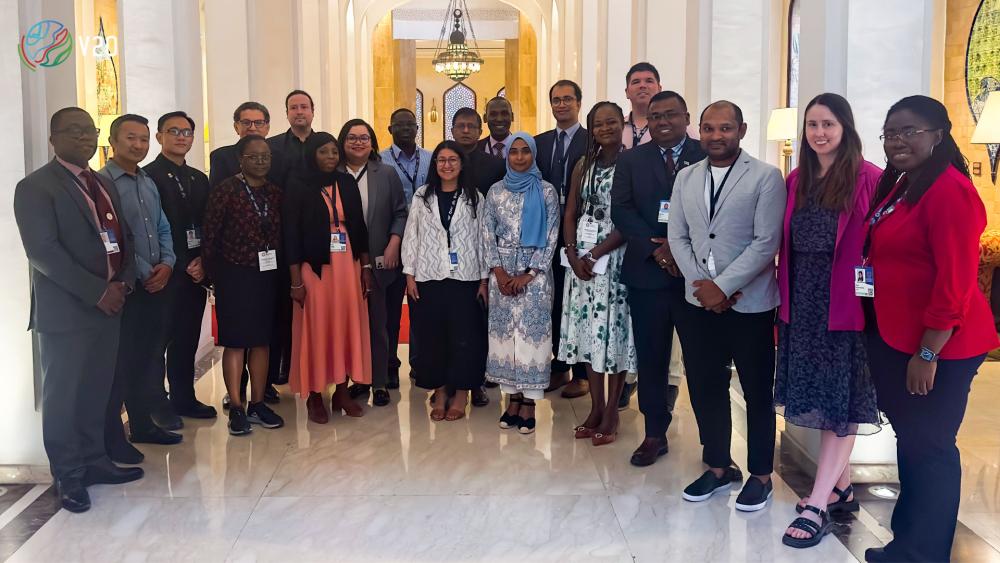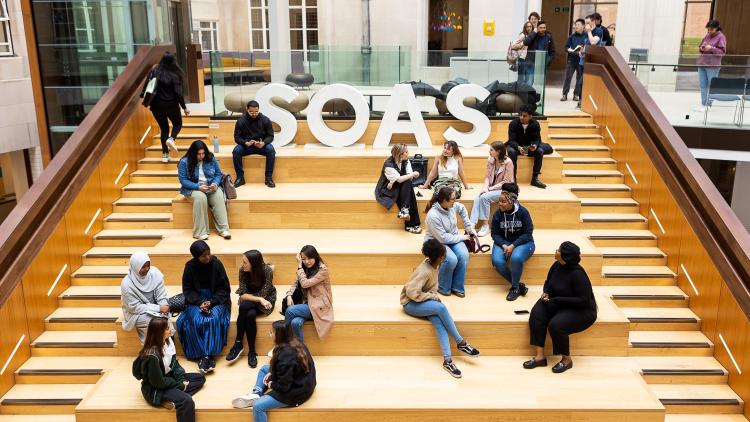SOAS Centre for Sustainable Finance launches on Climate Prosperity collaboration with V20 Finance Ministers and Boston University


The Vulnerable Twenty (V20) Group of Ministers of Finance of the Climate Vulnerable Forum launched a new 'Climate Prosperity Fellowship' programme in partnership with the SOAS Centre for Sustainable Finance and the Boston University Global Development Policy Center.
This initiative, which was launched on the side-lines of the Annual Meetings of the International Monetary Fund and the World Bank in Marrakech in October 2023, aims to advance cooperation and engagement of finance ministry officials from V20 member countries to address the challenges posed by an out-of-date global financial architecture and towards ambitious development-positive climate action through Climate Prosperity Plans.
More than 32 V20 member countries have expressed interest in developing and implementing ambitious national Climate Prosperity Plans during the 2023-2024 period. The V20 Climate Prosperity Fellowship programme seeks to accelerate capacity in V20 countries to secure financing for Climate Prosperity Plans and fast-tracking their implementation.
15 mid- to senior-level finance officials have been awarded a Fellowship, representing 13 V20 member countries: Bangladesh, Bhutan, Eswatini, Fiji, The Gambia, Ghana, Haiti, Honduras, Kenya, Maldives, Philippines, Rwanda, and Tonga. The Climate Prosperity Fellowship programme will equip the fellows with the latest research and analytics needed to develop and implement Climate Prosperity Plans while fostering collaboration on vital climate finance and sustainable development solutions.
The collaboration between V20 Finance Ministers, the SOAS Centre for Sustainable Finance and Boston University Global Development Policy Center will enable participants to contribute to global strategies aimed at combating climate change and promoting development-positive climate action. The programme is aligned with the V20’s Accra-Marrakech Agenda and focuses on its four key pillars:
- Make debt work for the climate
- Transform the international and development financial system
- A new global deal on carbon financing
- Revolutionise risk management for our climate insecure world economy.
At launch ceremony in Marrakech, Professor Ulrich Volz, the Director of the SOAS Centre for Sustainable Finance, expressed his delight about this collaboration with the V20 and the Boston University Global Development Policy Center and highlighted the great importance of strengthening capacity among finance ministries to climate-proof public finances and build resilience.
The collaboration will enable participants to contribute to global strategies aimed at combating climate change and promoting development-positive climate action.
SOAS has been working with the V20 Group of Finance Ministers since 2017. In 2018, SOAS published a ground-breaking study on Climate Change and the Cost of Capital in Developing Countries, showing for the first time that climate vulnerable countries have to pay a climate risk premium in international financial markets because of their climate vulnerability. In 2020, Professor Ulrich Volz was commissioned by the V20 to author a study on Macrofinancial Risks in Climate Vulnerable Developing Countries and the Role of the IMF to serve as a blueprint for a joint V20-IMF Action Agenda. Through the Debt Relief for Green and Inclusive Recovery Project, the SOAS Centre for Sustainable Finance is also a technical partner of a the V20’s Emergency Coalition for Debt Sustainability and Climate Prosperity.
The SOAS Centre for Sustainable Finance has a strong track record in capacity building in the area of climate resilience in the Global South. It has convened numerous bespoke capacity building programmes on climate risk and sustainable finance for central banks, supervisors and financial institutions in Africa, Asia, Latin America, and the Middle East. It also is a founding member and host of the secretariat of the University Network for Strengthening Macrofinancial Resilience to Climate and Environmental Change, which was established to build capacities at universities in climate-vulnerable countries to carry out relevant high-quality teaching and research and provide capacity building to ministries of finance and other relevant ministries.



